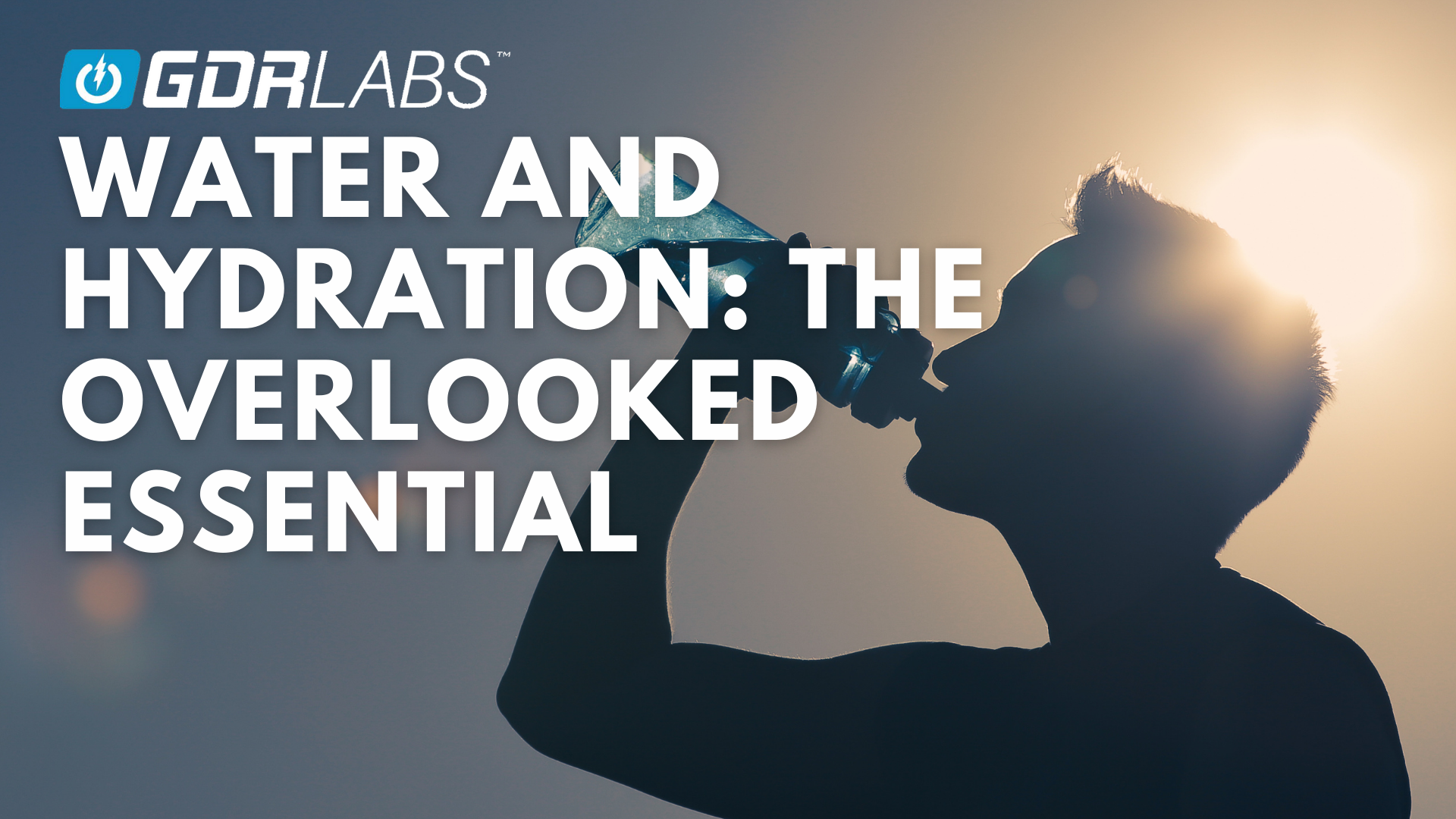Water and Hydration: The Overlooked EssentialUpdated 3 months ago
Water and Hydration: The Overlooked Essential

Regarding nutrition, protein, carbs, and fats usually steal the spotlight. But without water, none of these nutrients could even do their jobs. Water is the most abundant compound in the human body—making up around 60% of adult body weight—and is essential to life.
Despite its importance, many people underestimate the role of hydration in health. This article will explore water’s many functions, the benefits of staying hydrated, the recommended daily intake, and what happens when you fall short.
What Exactly Is Water’s Role?
Water isn’t just a thirst-quencher—it’s a critical nutrient that supports virtually every system in the body. Among its most vital roles:
- Cellular Function: Every cell depends on water for structure and function.
- Temperature Regulation: Sweating and evaporation help prevent overheating.
- Nutrient Transport: Water carries nutrients and oxygen to cells and removes waste products.
- Digestion & Absorption: Fluids help break down food and transport nutrients.
- Joint Lubrication: Water keeps joints cushioned and flexible.
- Circulation: Blood is more than 90% water, ensuring nutrients reach every organ.
Benefits of Proper Hydration
Meeting your hydration needs is linked with wide-ranging health benefits:
- Optimal Physical Performance: Even mild dehydration can impair endurance, strength, and coordination (Sawka et al., 2005).
- Cognitive Function: Hydration supports memory, mood, and concentration (Popkin et al., 2010).
- Kidney Health: Adequate fluid intake helps flush toxins and reduce kidney stone risk.
- Skin & Tissue Health: Water supports elasticity and overall tissue hydration.
- Weight Management: Drinking water before meals may help regulate appetite and calorie intake.
The Recommended Daily Intake
Hydration needs vary depending on age, activity level, climate, and overall health. However, general guidelines recommend:
- Men: about 3.7 liters (125 ounces) per day
- Women: about 2.7 liters (91 ounces) per day
This includes fluids from beverages and high-water foods like fruits and vegetables (National Academies of Sciences, Engineering, and Medicine, 2005).
Signs of Dehydration
Even mild dehydration can negatively affect the body. Watch for:
- Dry mouth or lips
- Dark-colored urine
- Headaches or dizziness
- Fatigue or lack of focus
- Reduced exercise capacity
Chronic dehydration has been linked to urinary tract infections, kidney stones, constipation, and impaired cognitive function.
Whole Food & Supplement Options for Hydration
The best way to hydrate is, of course, with plain water. But hydration can also come from:
- Fruits & Vegetables: Cucumbers, watermelon, oranges, strawberries, celery.
- Electrolyte Sources: Bananas (potassium), spinach (magnesium), dairy (calcium), and sodium from balanced meals.
- Electrolyte Supplements: Helpful for athletes in hot climates or prolonged sweating. Look for products without excessive added sugars or artificial ingredients.
The Bottom Line
Water is the proper “overlooked essential” of nutrition. Hydration impacts nearly every aspect of health, from transporting nutrients and regulating temperature to keeping your joints moving and your mind sharp. By aiming for consistent fluid intake through water-rich foods and beverages—and supplementing with electrolytes when necessary—you can protect your body from the pitfalls of dehydration and optimize your overall well-being.
References
- National Academies of Sciences, Engineering, and Medicine. (2005). Dietary Reference Intakes for Water, Potassium, Sodium, Chloride, and Sulfate. Washington, DC: The National Academies Press.
- Popkin, B. M., D’Anci, K. E., & Rosenberg, I. H. (2010). Water, hydration, and health. Nutrition Reviews, 68(8), 439–458.
- Sawka, M. N., et al. (2005). Human water needs. Nutrition Reviews, 63(6), S30–S39.